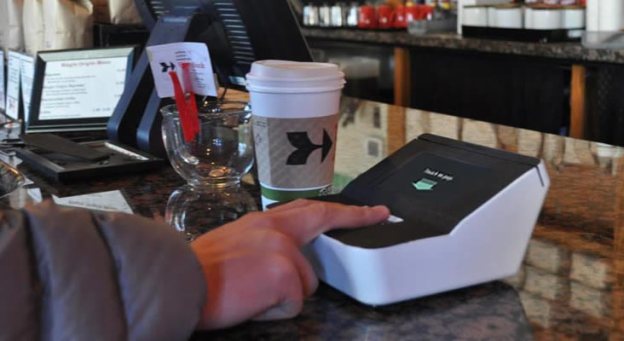
Explained in detail on the startup’s official site, PayTango is a system that links a person’s fingerprint with a form of payment like a credit card or debit card. Rather than having to pull out a credit card from a purse or wallet, a customer simply places their index and middle finger on the biometric fingerprint scanner and the software automatically recognizes the user. Tied directly into a merchant’s point-of-sale system, the payment method linked to the fingerprint is automatically charged. Not specifically limited to payments, fingerprints could also be linked to a store’s loyalty or discount program, thus avoiding an additional scan during the checkout process.

After scanning their fingerprints, the customer slides the card they want linked to the account and enter their cell phone number to complete the registration process. The entire process can be accomplished in approximately six seconds according to a Vine video published by the team.
According to Techcrunch, the cost of each device is currently about “between $1,500 and $1,700,” however the team is working to reduce the overall manufacturing cost and are interested in rolling out the payment tool on a wider basis around the Carnegie Mellon campus. The team is looking to install the hardware in locations that have a high volume of customers in addition to requiring speedy payment options. Besides fast food locations around campus, the PayTango could also be installed at businesses that require memberships like gyms. Ideally, this would allow members to cut down on what they have to carry into the gym.


